A 40 kg slab rests on a frictionless floor. A 10 kg block rests on top of the slab. The coefficient of friction between the block and the slab is 0.40. The 10 kg block is acted upon by a horizontal force of 100 N. If g=10m/s2, the resulting acceleration of the slab will be
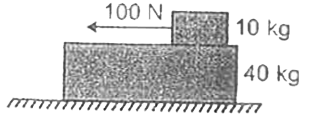
3ms−2
4ms−2
1ms−2
2ms−2
The correct Answer is:C
Step by step video solution for A 40 kg slab rests on a frictionless floor. A 10 kg block rests on top of the slab. The coefficient of friction between the block and the slab is 0.40. The 10 kg block is acted upon by a horizontal force of 100 N. If g=10m//s^(2), the resulting acceleration of the slab will be by Physics experts to help you in doubts & scoring excellent marks in Class 11 exams.
Similar Questions
A 42 kg slab rests on a frictionless floor A 9.7 kg block rests on the top of the slab as shown in the figure. The co-efficient of static friction between the block and the slab is 0.53, while the co-efficient of kinetic friction is 0.38. The 9.7 kg block is acted upon by a horizontal force of 110 N. What are the resulting accelerations of
(a) the block, and (b) the slab? (Take g=9.8m/s2)
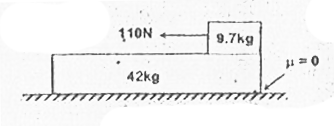 View Solution
View SolutionA block B of mass 5kg is placed on a slab A of mass 20kg which lies on a frictionless surface as shown in the figure. The coefficient of static friction between the block and the slab is 0.4 and that of kinetic friction is 0.2. If a force F = 25N acts on B, the acceleration of the slab will be:
 View Solution
View Solution
Knowledge Check
- Question 1 - Select One
A block of mass 2kg rests on a rough inclined plane making an angle of 30∘ with the horizontal. The coefficient of static friction between the block and the plane is 0.7. The frictional force on the block is
A10.3NB23.8NC11.9ND6.3N
A large slab of mass 5kg lies on a smooth horizontal surface, with a block of mass 4kg lying on the top of it. The coefficient of friction between the block and the slab is 0.25. If the block is pulled horizontally by a force of F =6N, the work done by the force of friction on the slab, between the instants t=2s and t=3s, is (g=10ms−2)
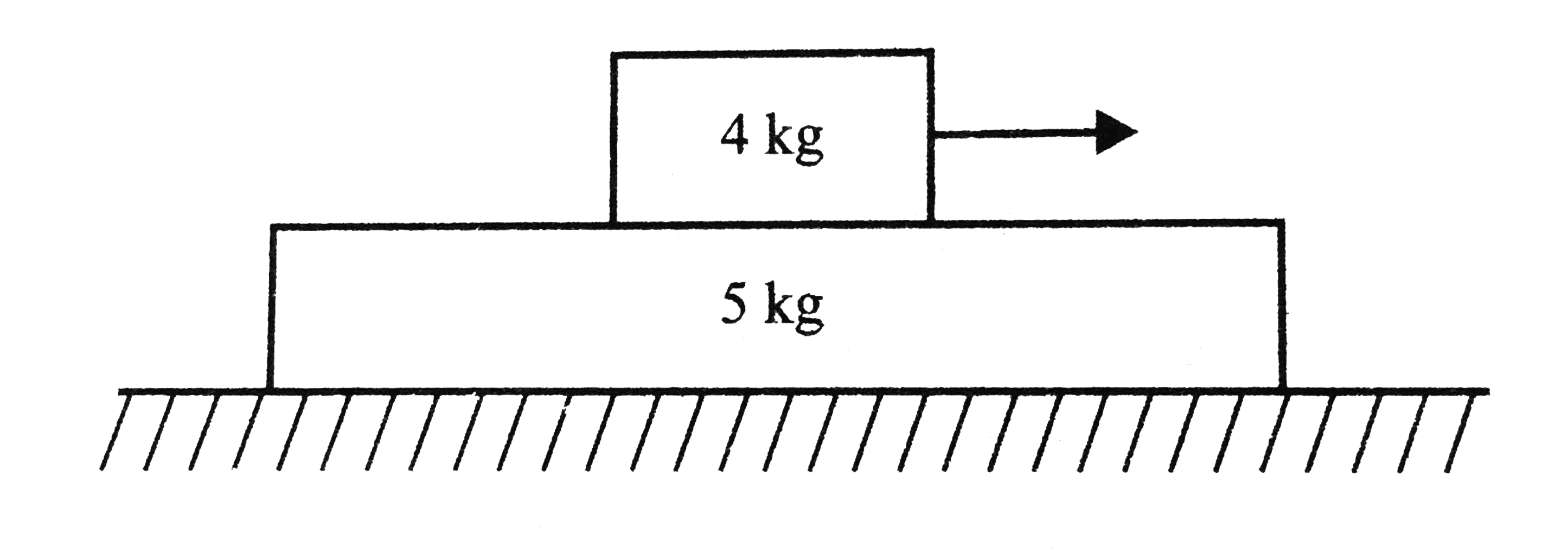 View Solution
View SolutionA slab of 40kg lying on a frictionales floor and a block of 10 kg rests on the slab as shown in the figure. The coefficients of static and kinetic friction between the slab and the block are 0.6 and 0.4 respectively. If a force of 100N is applied on the block, then the acceleration the slab will be (g=10m/s2)
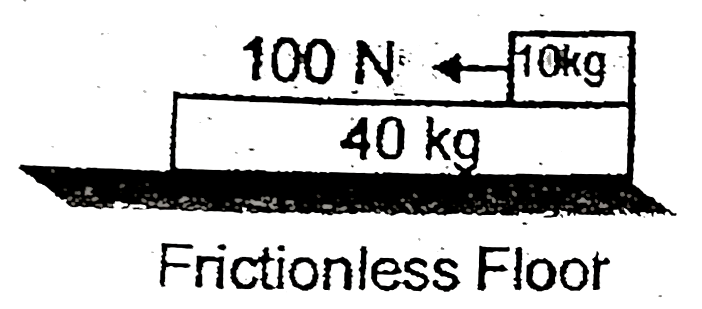 View Solution
View SolutionA block of mass 2kg rests on a rough inclined plane making an angle of 30∘ with the horizontal. The coefficient of static friction between the block and the plane is 0.7. The frictional force on the block is
View SolutionA block of mass M = 10kg is placed on a slab of mass M2=30kg. The slab lies on a friction less horizontal surface as shown in figure. The coefficient of static friction between the block and slab is 4, = 0.4 and that of dynamic friction is My = 0.15. The acceleration with which the slab will move is (g=10ms−1)
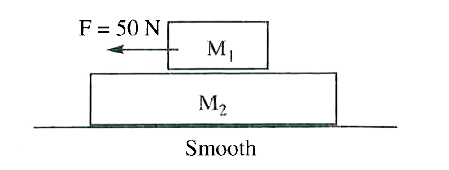 View Solution
View SolutionA force of 200N is applied as shown in the figure on block of 3 kg. The coefficient of friction between the block and the wall is 0.3. Find the friction acting on the block. (in N) {Take g = 10 m/s2
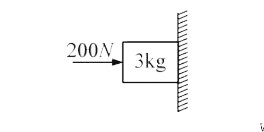 View Solution
View SolutionIf coeffiecient of friction between the block of mass 2kg and table is 0.4 then out acceleration of the system and tension in the string. (g=10m/s2)
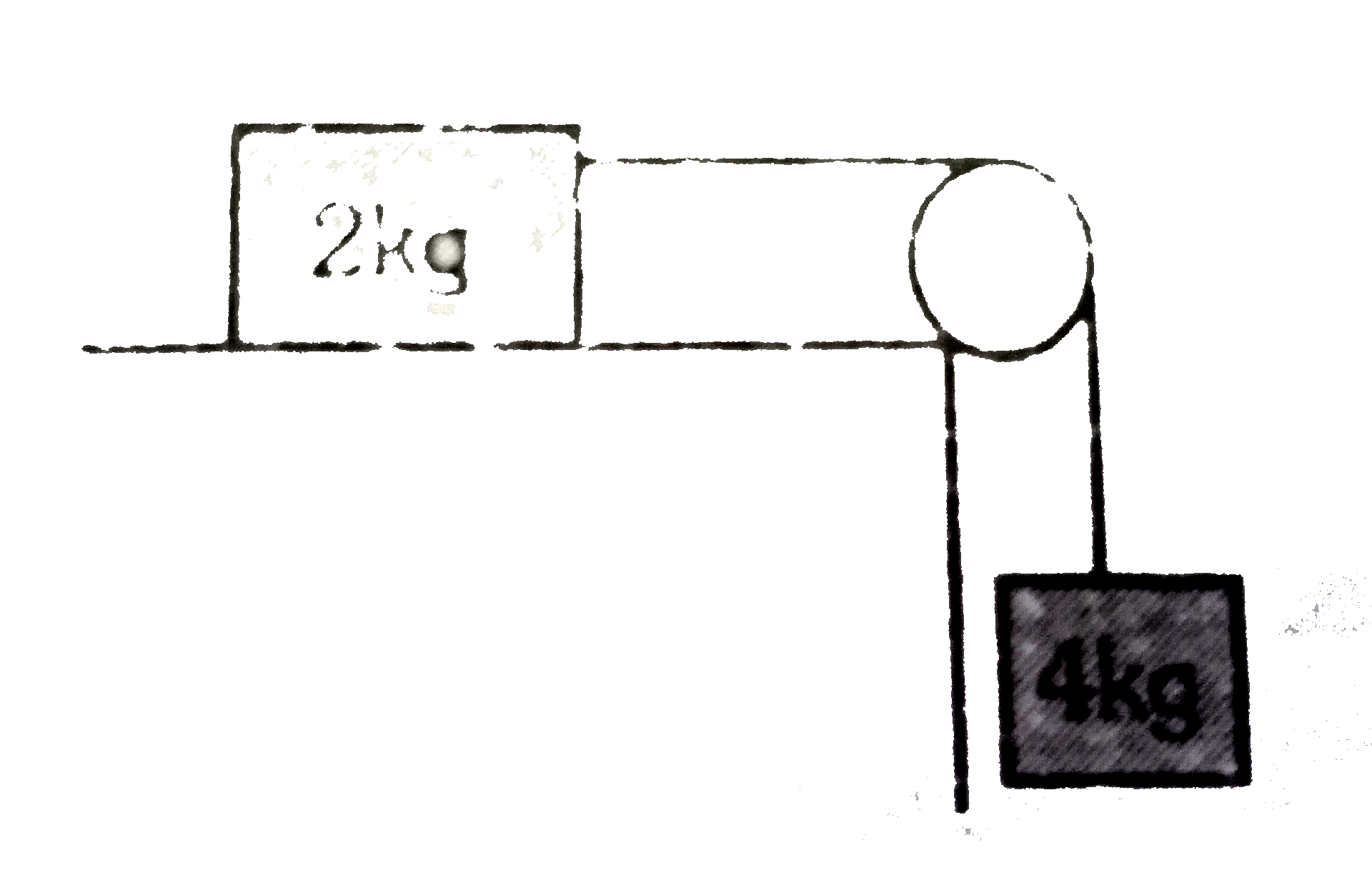 View Solution
View SolutionA horizontal force of 10 N is necessary to just hold a block stationary against a wall. The coefficient of friction between the block and the wall is 0.2. the weight of the block is (g=10m/s2)
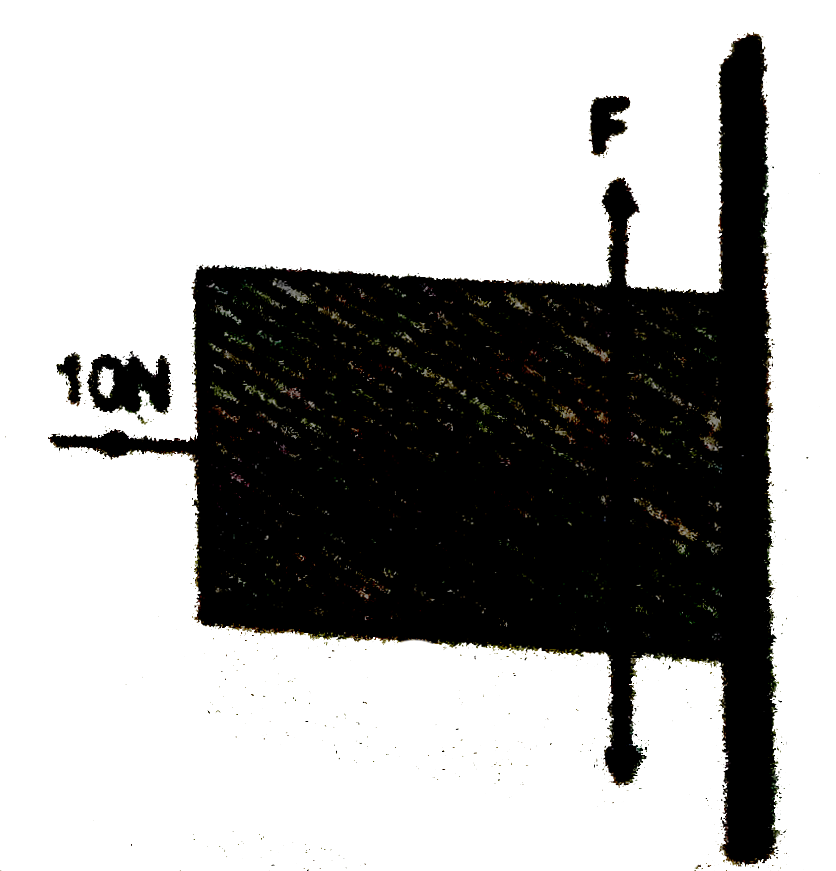 View Solution
View Solution
